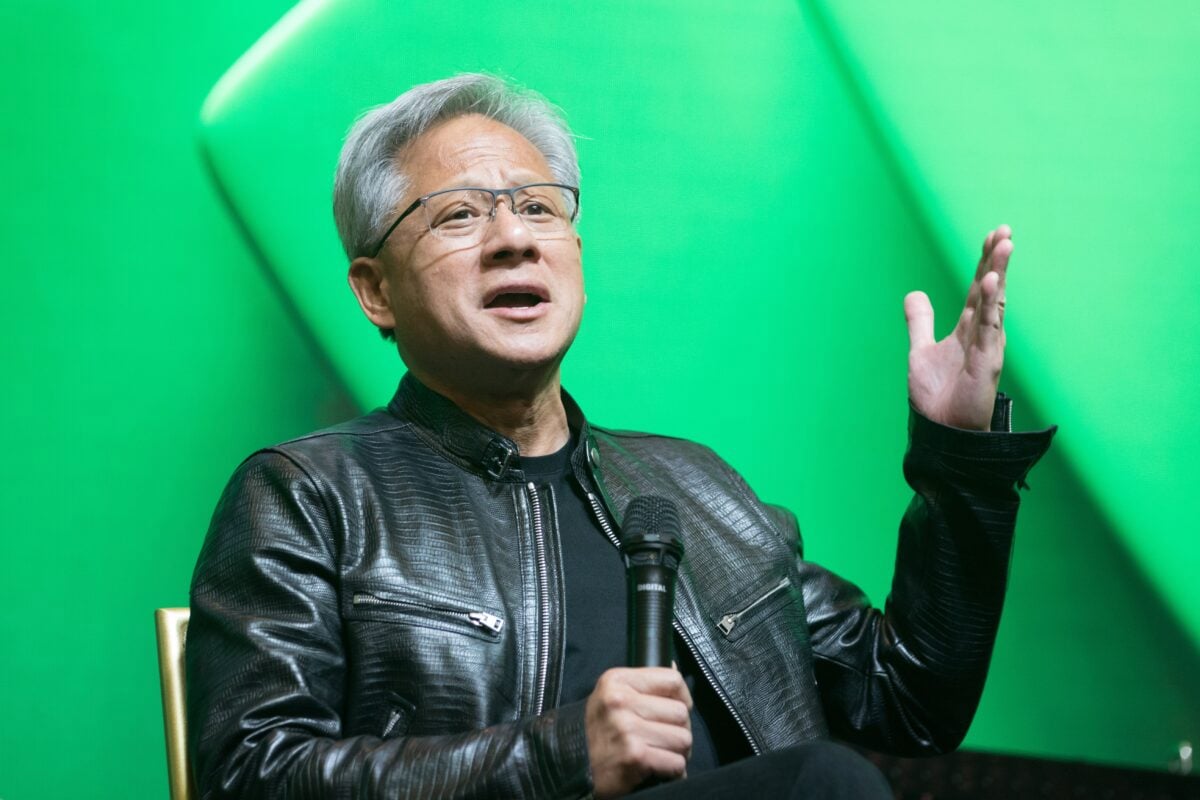TLDRs;
Contents
- Nvidia CEO praises TSMC, calling it a historical tech leader worth investing in.
- TSMC’s dominance in the semiconductor market gives it strategic leverage globally.
- Nvidia plans a new Taiwan office to support its growing workforce.
- U.S.-China tensions impact Nvidia’s H20 chip supply chain in China.
During a high-profile visit to Taiwan, Nvidia CEO Jensen Huang lauded Taiwan Semiconductor Manufacturing Co. (TSMC), describing the company as “one of the greatest in history” and signaling that its stock could be a smart investment.
TSMC is the world’s largest contract chip manufacturer and a crucial supplier for Nvidia’s upcoming Rubin AI chip platform, positioning it at the center of global semiconductor innovation.
Huang’s remarks highlight TSMC’s unmatched role in the tech ecosystem, where its manufacturing capabilities underpin cutting-edge AI and computing solutions for companies worldwide. Analysts say Huang’s comments may also boost investor confidence in TSMC, which has consistently delivered strong financial results.
TSMC Holds Key Market Leverage
TSMC’s overwhelming market share in the global foundry space, 64.9% as of Q3 2024, gives it significant leverage over governments and tech giants alike. Its dominance has fueled speculation around potential U.S. government investments under the CHIPS Act.
While Commerce Secretary Howard Lutnick discussed the possibility of equity stakes, reports indicate no immediate plans to acquire shares in firms expanding U.S. operations, including TSMC.
The company’s ongoing investment in U.S. operations is substantial. TSMC was promised $6.6 billion by the U.S. government to help construct three advanced chip factories in Arizona, while the company itself announced plans to invest $165 billion domestically. This level of financial firepower allows TSMC to negotiate favorable terms with governments rather than passively accepting conditions tied to funding.
Nvidia Expands Taiwan Operations
To accommodate its expanding workforce, Nvidia is opening a new Taiwan office named “NVIDIA Constellation.” This move underscores the company’s long-term commitment to the region and its strategic partnership with TSMC.
The new facility will support research, development, and manufacturing collaboration, particularly for Nvidia’s AI-driven products, including the Rubin chip series.
Huang emphasized that the expansion is part of a broader effort to deepen Nvidia’s presence in Asia, aligning with the company’s global growth strategy and the increasing importance of Taiwan in semiconductor production.
U.S.-China Tensions Affect Chip Supply
Meanwhile, Nvidia has reportedly asked some suppliers, including Foxconn, to pause work on its China-focused H20 chips due to security concerns raised by Beijing.
This reflects the growing geopolitical pressures on semiconductor supply chains, with companies navigating the delicate balance between innovation, trade restrictions, and government oversight.
Industry observers note that the semiconductor sector is projected to grow from $627 billion in 2024 to $697 billion in 2025, with TSMC alone generating $69.3 billion in revenue in 2023. This explosive growth is driving government interest in equity stakes, as countries seek both strategic influence and potential financial returns.
Conclusion
Nvidia’s praise of TSMC highlights not only the company’s historical significance but also the critical role it plays in the future of AI and global technology.
With ambitious U.S. investments, ongoing Taiwan expansion, and complex geopolitical dynamics, TSMC stands as a linchpin in the rapidly evolving semiconductor landscape, attracting attention from investors, governments, and tech companies worldwide.


